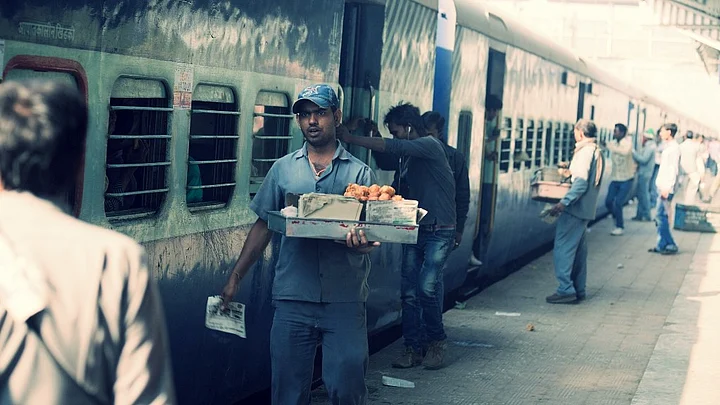It was a Facebook post by Protapta Das two weeks ago that opened a can of worms about the Indian Railways’ tryst with ‘catering scams’.
Das’ post alleged that the pantry staff in the Yesvantpur-Howrah Express he was travelling in were fraudulently selling food to railway passengers at more than double the printed MRP.
But the post was deemed to be ‘misinformation’ by the Ministry of Railways in an official tweet. And, similar to the fate of many other viral stories on the internet, this incident grabbed headlines for only a few days before receding into the background. In the midst of all the allegations and denials, what exactly happened on 9 February?
The Story of Protapta Das
Speaking to The Quint, Das explained the sequence of events that transpired in the train coach.
All of us were being overcharged in the train. The pantry car in-charge and other workers tried selling the passenger food at double the prices. But this IAS officer (Shivendra K Sinha, as mentioned in his Facebook post) decided to inquire about this.
“Upon searching on the internet for IRCTC’s latest menu rates, it was apparently found that the veg meals the pantry workers were selling at Rs 90, were in fact for Rs 50,” he said. Even after the staff were informed about the rates on the website, they did not budge, according to Das.
After being denied the menu’s rate card by the staff, the retired IAS officer traveled all the way from the 13th coach to the 1st coach to file a complaint. Along the way, he informed all the passengers sitting in the coaches about the overcharge. This is how Das came to know about it. We learnt from him that after all the ruckus, the train waiters started charging passengers the correct MRP.
He then told us that he put up the Facebook post because he wanted people to know about the gravity of the situation and that he does not have high hopes for the Indian Railways to fix this in any way.
Indian Railways and Food Overcharge: An Old Story
Das’ Facebook post ends with a video in the Ranikhet Express where a similar incident took place.
On any given day, over 12,000 trains run on the Indian Railways. A case of overcharging by even Rs 10 per person can fetch crores in extra money. The extent and scale of the scam, therefore, cannot go unnoticed.
And, clearly, it hasn’t.
Disgruntled passengers have taken to several grievance portals, including the Indian Rail Info, about similar cases. A simple search on it reveals a plethora of complaints spanning several years.
Although overcharging of Rail Neer, food on stations and trains is illegal, it has been making news for years on end. Pantry staff asking for tips at the end of train journeys happens till date, even in trains like Rajdhanis and Shatabdis.
In its judgment of 9 July 2014, the grievance redressal forum directed the Railways to pay a passenger Rs 50,000 as compensation a month. The passenger had reported about overcharging in the Chennai to Howrah Corromandal Express.
What the Railways Has Done
In the wake of complaints regarding the Railways’ catering service, the board in July 2015 decided to make it compulsory for all train coaches and carriages to display a menu card. This also applies to train waiters and the pantry staff, who are required to carry the menu card.
In October 2015, Railway Minister Suresh Prabhu ordered a review of all the catering contracts and asked for a blacklist of companies involved in unfair and corrupt practices to be initiated.
On 15 February 2017, a few days after Das’ post went viral, the IRCTC also launched a ‘Know Your Entitlement’ campaign on Twitter.
The comments on Das’ Facebook post, ones that range from congratulating him for taking the “brave step” to people citing similar instances, are probably testimony enough of brewing discontent in passengers travelling on Indian trains.
The government has implemented some steps to curb these incidences that prompt ordinary citizens like Das to take to the internet. But the question is, will they be enough to stop individual employees from taking undue advantage?
(At The Quint, we question everything. Play an active role in shaping our journalism by becoming a member today.)
